By Felipe on October 10th, 2018. Posted under: 2018, News and Views
On Saturday, the US Supreme Court gained a clear majority of members prepared to overturn nearly 50 years of legal abortion in the US. No matter how you may feel about the new Justice himself, the balance of the Court will negatively affect reproductive justice for years to come. The impacts of future Supreme Court decisions will be broad, and one of those impacts will be fewer doctors able to perform abortions.
Our colleagues at the Center for Reproductive Rights predict that 22 states will lose legal abortion if Roe v. Wade is overturned or gutted. Unfortunately, 80 medical schools are in those 22 states. So what will it mean when all the doctors graduating from all those medical schools have no medical knowledge or skills related to abortion?
Unless we start working now to nurture medical professionals trained and willing to provide safe abortions, regardless of whether abortion is legal in their states, the loss of a qualified medical workforce will greatly worsen the loss of legal abortion for those who seek it. It will also exacerbate the consequences for those that, in desperation, seek unsafe abortions.
Prior to the Court’s legalizing abortion in 1973, some doctors provided safe abortions to patients despite the possible legal consequences because they were compelled by their conscience and compassion for those they served. The unfortunate experiences they had caring for hundreds of thousands of women in hospitals suffering from unsafe abortions gave them the skills they needed to safely provide this care. Today, the loss of education and training that would result from overturning Roe would leave large areas of the US, within just a few years, with few doctors trained to provide…and those doctors will be aging.
I was in high school when the Court legalized abortion in the US. The Roe decision didn’t just pop up out of nowhere. It came after years of dedicated effort to change the way abortion was viewed by the American public, an effort that led to the liberalization of abortion laws in 17 states prior to the Court’s decision. Today, we are facing another long period of effort focused on preventing access to abortion from sliding back too far and then pushing the pendulum back toward a saner, safer view of abortion access.
Physicians, and all medical professionals, will be critical to that effort because they will be on the front lines in the fight to maintain access to safe abortion, and where that is no longer possible, to save the lives of those suffering from unsafe abortion. Medical Students for Choice is at the center of the effort to ensure that medical students have an opportunity to gain the skills and knowledge, and to nurture the courage needed to facilitate care for the most vulnerable.
MSFC is uniquely positioned to do this with chapters at 158 medical schools in the US. MSFC members are active in every region and almost every state including Alaska and Hawaii. More than half (85) of MSFC’s US chapters are in politically conservative states. These are states, such as Texas and South Dakota, with legislatures determined to limit access to abortion and eager to eliminate access to abortion entirely if Roe’s protections are taken away. Having directly experienced the many impacts on access coming out of their states’ legislatures over these past years, our members are well aware that Roe’s protections cannot be taken for granted. Helping their patients get to clinics that may be hundreds of miles away has become commonplace for many of our members in these states.
Abortion knowledge and skills are essential for doctors because they are the same skills they will need to help those suffering from unsafe abortion. The devastating injuries and deaths resulting from unsafe abortion happen everywhere, worldwide, in places without access to safe, legal abortion. Without physicians with the knowledge or skills in abortion, women will unnecessarily die or suffer long-term injuries. That’s a fact.
MSFC is not sitting by and waiting to respond to those horrifying outcomes. We are preparing every chapter in those 22 states to fill the educational needs for their fellow students and supporting our chapters’ involvement in both institutional and state-wide advocacy campaigns. We have a plan and we have already begun to implement it.
As difficult as these times are for all of us who care so deeply about equity and social justice, working with young people who are passionate about these issues is a real privilege. I know that thousands of MSFC members will help push the pendulum of change back toward care and compassion. And although many MSFC chapters will be directly affected by any US Supreme Court changes to legal abortion, many are also in states where abortion is expected to remain legal. As a community, we will pull together to ensure that interested students from poor access states will be able to seek education and training elsewhere. Our hundreds of abortion-providing alumni are already stepping up to support students in states like Arizona that prohibit abortion education in their state schools.
Hope, persistence, and a vision of what we want our world to be like will carry us through these challenging times. We can only hope that reason will prevail in our courts and legislatures, but with a relatively young majority on the Court that opposes the Roe decision, we have many years of hard work ahead of us. MSFC already has changed, fundamentally, the way that the medical profession views abortion and family planning. As we move forward from here, I know that regressive values cannot stand long against the hundreds of MSFC members graduating from medical schools each year.
By Felipe on December 21st, 2015. Posted under: News and Views
You have surely heard of the constant barrage of legal attacks on abortion in the US. At MSFC, we are known for working to battle this onslaught of legislation by helping to create the next generation of abortion providers. Our efforts are especially important because women in the US are facing challenges to accessing abortion that rival the pre-Roe era. However, this problem is not restricted to North America. Nearly half of all abortions worldwide are unsafe, and nearly all unsafe abortions (98%) occur in developing countries. The MSFC network has made bold strides in addressing these challenges in the US and Canada, and now MSFCers, such as Grace, are fighting for access to safe abortion internationally.
Grace is from Uganda, where there are unclear legal restrictions on abortion and high rates of unintended pregnancy due to a lack of contraceptives[1]. Poor and rural women are disproportionately affected by the lack of abortion providers because of financial and geographic restraints. Without access to the necessary family planning tools, women resort to seeking abortions from untrained providers using unsafe methods or attempting to self-induce an abortion. However, this problem is not just restricted to poor women. Women with a greater socioeconomic status may have more access to abortion providers, but legal restrictions often requires providers to perform the procedure clandestinely, increasing the danger and financial cost of the service.
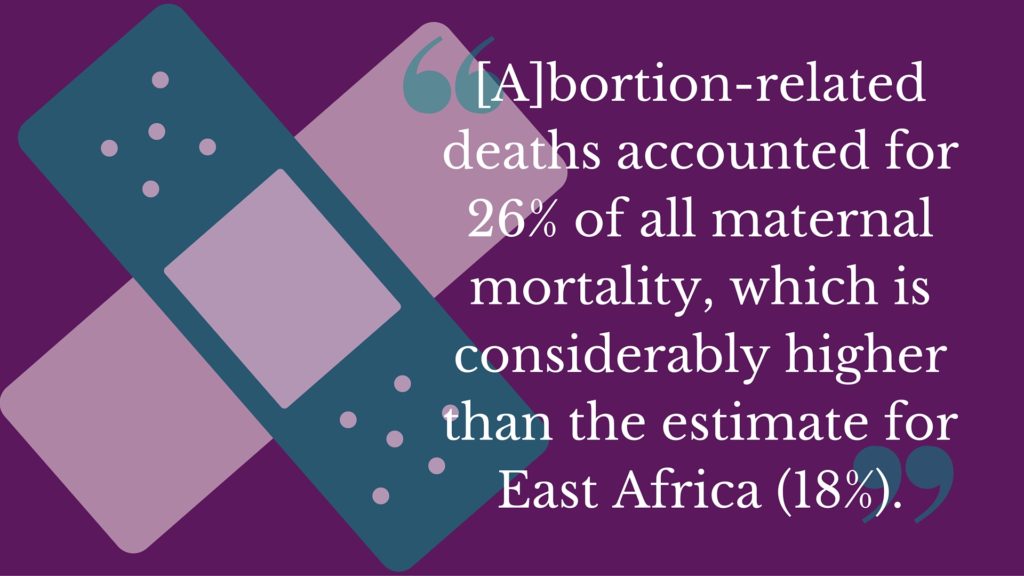
The Ugandan Ministry of Health estimated in 2008 that abortion-related deaths accounted for 26% of all maternal mortality, which is considerably higher than the estimate for East Africa (18%). Even more women suffer injuries from unsafe procedures, and Grace tells us that “many of these mothers come in with excessive bleeding.” Unsurprisingly, poor and rural women experience most of these complications at an estimated 68-75%. When women do have complications, they delay going to a health care provider for fear they will receive judgmental or abusive treatment. To further exacerbate this crisis, many nurses and midwives who are legally permitted to provide post-abortion care do not have proper training.
Through educating herself and others, Grace is changing the landscape of abortion in Uganda. After finding MSFC through a Google search, Grace founded a chapter at her university in Uganda, arranged a Reproductive Health Externship at a Planned Parenthood clinic in California, and attended an Abortion Training Institute. Only two weeks into her ob-gyn rotation, Grace tells us that she “has done fifteen Manual Vacuum Aspirations[2] and all my mothers are doing very well after a week’s review.” Grace is passing on her knowledge as well, stating, “I have also managed to teach many students how to use an MVA.”

At MSFC, we believe that the key to keeping choice and women alive is by training and supporting future providers like Grace. Grace recently wrote to us, “I am glad to have saved a lot of lives, and I attribute this to the training, support and encouragement I have received from each one of you. I feel very happy about my work, and each time I think about the training I have had through MSFC, I just can’t imagine how much I can thank you. I now feel more confident to continue my work and pray that I perfect my skills, teach many more people, and maybe someday we shall get to the end of the road. Thanks to Planned Parenthood, thanks to MSFC, and God bless every one of you. Please continue supporting us as we support many more to live the lives they dream.”
We are so proud and humbled by everything Grace has accomplished. We will always support those seeking to make abortion safe and accessible.
[1] To learn more about the state of abortion in Uganda, visit https://www.guttmacher.org/pubs/FB-Abortion-in-Uganda.html.
[2] Manual Vacuum Aspiration (MVA) is one of the safest medical procedures used to end a pregnancy up to twelve weeks into the pregnancy.
By Felipe on December 01st, 2015. Posted under: News and Views
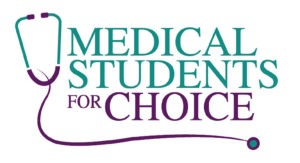
In the field of abortion care the isolation and targeting of physicians is nothing new. We have seen these terroristic attacks take the form of picketing providers’ homes and children’s schools, clinic arsons and bombings, and most horrifying, the murder and attempted murder of abortion providers. As we look back on 2015, the landscape is once again filled with a barrage of attacks on women’s access to abortion care.
This past weekend, as we have seen too many times before, those who lovingly accompanied friends and family members to a health clinic to receive care lost their lives to this violence. When the political rhetoric rises to the extreme levels we have seen be endlessly repeated in our media this year, we must hold those voices accountable for the horrific consequences of their callous, politically motivated decisions.
At MSFC, we dedicate our work to ensuring that everyone will have a caring, compassionate physician to provide any medical support a person or family may need. The absolute commitment to that vision shown by our members every day is inspiring and serves to answer the strident voices of those who will go to any lengths to prevent people from making their own health decisions. Abortion is moral and legal, murder is not. It’s that simple.
By Felipe on November 03rd, 2015. Posted under: News and Views
Each year at MSFC’s Conference on Family Planning, Medical Students for Choice presents the MSFC Alumni Award to former MSFC members in recognition of the positive impact they have had on abortion care for the women in their communities. This year’s recipients are Dr. David Eisenberg and Dr. Debra Stulberg.
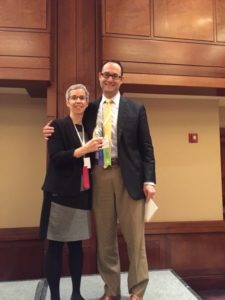
Dr. David Eisenberg and MSFC Executive Director Lois Backus
Dr. David Eisenberg is an Assistant Professor in the Department of Obstetrics & Gynecology at Washington University in St. Louis and the Medical Director of Planned Parenthood of the St. Louis Region and Southwest Missouri. Dr. Eisenberg entered medical school planning on a career in orthopedics but refocused his career toward women’s health after discovering MSFC. He led the MSFC chapter at the University of Alabama, Birmingham before going to Northwestern University to complete both his residency and his Fellowship in Family Planning. As an ob/gyn in St. Louis, Dr. Eisenberg is one of only a handful of physicians providing abortion care in Missouri. He has been targeted online and at his home for being a physician of conscience, fulfilling what he feels is his professional obligation to the patients he serves.
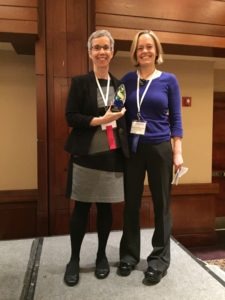
Dr. Debra Stulberg and MSFC Executive Director Lois Backus
Dr. Debra Stulberg is an Assistant Professor in the Department of Family Medicine at the University of Chicago. Dr. Stulberg joined MSFC as a student at Harvard Medical School and became one of MSFC’s Regional Coordinators in her clinical years. Defying Harvard convention, she chose to pursue a residency in family medicine back in her hometown of Chicago where she quickly learned her residency program was merging with a Catholic-affiliated healthcare company. Dr. Stulberg faced, and overcame, incredible barriers to training in abortion care while a resident. These obstacles led her to found the Midwest Access Project, an organization based in Chicago which is dedicated to providing abortion training to medical students, residents, and mid-level clinicians in the Midwest. Since 2007, 150 people have been trained through the Midwest Access Project. As a teacher, trainer, and researcher, Dr. Stulberg has truly distinguished herself among her peers.
As an organization we are incredibly humbled to be surrounded by alumni who are leading voices in the reproductive health movement, and who have courageously answer the call to be committed, compassionate abortion providers.
By Felipe on October 29th, 2015. Posted under: News and Views

By Oliver Reagan, second year medical student and current MSFC member
I have always been a passive supporter of a woman’s right to choose—an ally who would quietly affirm my support if asked but who would not go out of my way to engage in discourse about abortion and family planning. This past spring I underwent a transformation in terms of how I thought about issues of reproductive justice and my need to be a part of the dialogue. As states continue to pass legislation that places undue barriers in the way of women seeking safe and legal abortion it is clear that there is not time to be silent.
When I entered the clinic on the first day of my Reproductive Health Externship (RHE) I remember feeling uneasy and uncertain about what the experience would be like. I will always remember something that my attending said to me on my first day—it speaks volumes about both the care she has for her students, her patients and for the humanity of her medical practice. She told me, “there is no wrong way to feel when you observe a termination. You may feel a mix of emotions and it is important to realize that that is OK. Here we talk about our feelings. This is difficult for everyone, but remember that this is about making a difference in patients’ lives”. This advice laid the groundwork for what would become one of the most important and transformative experiences for me as future physician and provider.
My RHE experience taught me that people from all walks of life seek safe abortion services. They are women with planned pregnancies carrying babies with terrible genetic anomalies. They are women who are already mothers and cannot financially manage another child. They are young women for whom a child doesn’t yet fit into the equation. The overall conclusion is that there is not a “typical” woman who seeks an abortion. The truth behind the matter is that 1 in 3 women in the U.S. have an abortion by the time they reach menopause and that 50% of all pregnancies are unplanned. The societal silencing of discussion about abortion prevents us from acknowledging these truths and the critical role that access to safe and legal abortion plays in women’s health care. Too often, anti-choice groups paint abortion providers as individuals who in some way push woman toward a decision to terminate a pregnancy. This summer I worked with physicians and nurses who worked with great compassion to support women as they made one of the most difficult decisions of their lives. Women were asked not only about why this was not the right time for a pregnancy, but were also counseled about all of their possible options. In no situation was a woman who was on the fence ever encouraged or pushed toward a decision she was not ready to make. The tact and the humanity of the providers I worked with were truly remarkable and inspirational.
When it comes down to it, all of the women I had the privilege of taking care of had thought deeply and carefully about their decision. It is not something any of them took lightly. For these women it was one of the most difficult choices of their lives, requiring deep emotional reflection about what carrying this pregnancy to term would mean for them (and potentially their families). When I reflect on mandatory waiting periods imposed by state legislatures for women seeking abortion services, I think back to these women and the conversations we had. Many of them faced significant financial challenges just to get to their first appointment. This includes not only missed wages but also the cost of transportation and lodging (many came from hundreds of miles away). The financial burden is substantial before the cost of the procedure is even added in. When states demean women by forcing them to “wait”, they imply that they are incapable of making decisions about their bodies and show a disregard for the emotional and financial toll it takes on them. I feel privileged to be trained in a state that values access to safe abortion and does not place undue burdens on its providers and patients. It has helped me to see what access should be like for women all over this country and it underscores the need for providers, nurses, students and allies to stand up and expose these restrictions for what they are—tools designed to limit a woman’s right to access a safe and legal medical procedure.
By Felipe on August 31st, 2015. Posted under: News and Views
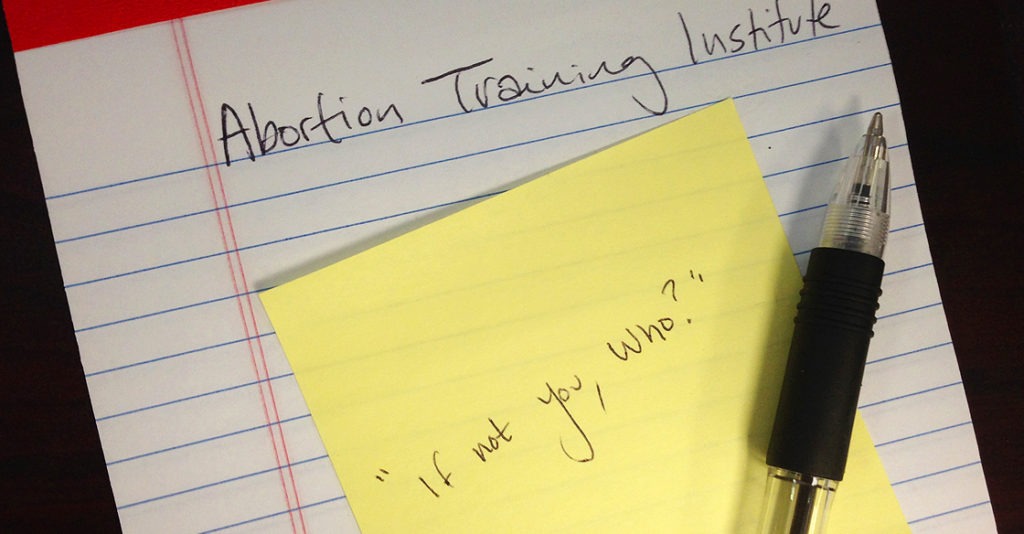
Jordana Gilman is a second year medical student at SUNY Upstate Medical University. She recently attended MSFC’s Abortion Training Institute, which is an intensive educational opportunity for medical students to learn about abortion from family planning experts.
I assert my pro-choice beliefs in public. As a result, I often get questions. As a future doctor and as an advocate I want to provide honest and accurate answers to people who come to me for information. I know that if I’m unable to answer their questions other sources will step in and spread the myths and inaccuracies. If I can’t explain that abortion doesn’t cause infertility, breast cancer, or depression, who will?
I first learned about abortion at an early age. In fact, learning about it first sparked my interest in medicine. Even when I was little, I thought that all women should have access to abortion. It wasn’t fair that some women were given the option to end a pregnancy they didn’t want and others were prevented by laws and costs from doing the same. Over time, my sense of “not fair!” evolved into a recognition of the systemic injustice of limiting women’s reproductive rights.
But even with my early exposure and solid commitment to reproductive health, I had never learned the details. While I had a vague understanding, I had almost no concept of what an abortion procedure actually entailed. I wanted to be comfortable explaining it to my friends and peers when I did get those questions. So, when I heard about MSFC’s Abortion Training Institute, I applied.
The Abortion Training Institute kicked off with back-to-back lectures outlining the basics of abortion. I joined two dozen other medical students in getting the 2-day crash course on all things family planning. Like all the lecturers that weekend, the first speaker was an abortion provider and used her expertise and experience to teach us. First, she walked us through both first and second trimester procedures. We discussed the pros and cons of medication versus aspiration. We explored the details in depth, down to how many cc’s of lidocaine to place on the cervix and at which locations. We wove through the ins and outs of the evidence-based protocols. And we groaned over how the evidence often goes against FDA recommendations. I was getting the facts I came for.
We even had a lecture on how to examine post-procedure products of conception, which is a crucial part of abortion and post-miscarriage treatment. Abortions, like many medical procedures, can be…well…gross and the pictures we viewed were graphic.
While I sat, looking at pictures of products of conception, I felt respected. Most medical schools don’t cover even the basics of abortion and fewer still will go into this level of depth. The providers teaching us were not trying to protect us from the gritty details. In fact, by being real with us they were encouraging us to become providers ourselves. They didn’t pretend that providing abortions is easy or try to sugarcoat the details of the medical procedure. Instead, as medical students and potential future providers, we were trusted to know and focus on the value of the service. Even while facing uncomfortably graphic images, we firmly held the truth that abortion is part of good medical care.
Abortion is about helping women, but help is getting harder and harder to find. Nationwide, a dwindling number of doctors struggle to fill a gaping hole of need. So many young doctors are deterred from proving abortions by stigma, lack of training and a discomfort with the procedure. Between facts about abortion protocols, our teachers encouraged us to consider helping to fill that gaping hole by choosing to provide.
Looking around the room, I started doing the math in my head: how many states, how many women, how many communities have a provider who is “aging out,” or no provider at all? How many new providers would my generation of medical students produce? And how many new providers would women of my generation need? No matter how uncomfortable it might be to face the facts, women will always need abortions. “If not you, then who?” the providers asked. It was a call to action.
During the values clarification session I had my most surprising realization. I had applied to medical school so that I could provide abortions and reproductive care to women. Even though I was committed, I hadn’t considered what limits I had, if any. The instructor pressed me to say under what conditions I would perform an abortion. Would I limit my provision based on any fetal anomalies? On the sex of the fetus? How far along the pregnancy was?
While my new friends and colleagues discussed their opinions around me, I found clarity. I took a deep breath and realized that what I believe is a good reason to get an abortion doesn’t matter. What I would do in someone else’s shoes doesn’t matter. This isn’t about me. This isn’t about me at all. In that moment, I gave up that sense of righteousness. I gave up on control. It doesn’t matter whatsoever what I believe, only that I believe in a woman’s right to choose.
On the last day of the Institute each abortion provider shared their personal experience with us. The doctors on the provider panel spoke about the life choices they have had to make in order to provide abortions. Each had some family sacrifice. One chose to live in the middle of nowhere to staff a clinic. They spoke of their inconveniences, their struggles and the threats they’ve faced.
Nobody pursues medicine so that they can walk through a throng of protesters every day. Or jump through policy hoops to provide care. Or have their pictures smeared on the internet. But this panel contained not an ounce of self-pity. Even after describing their trials, each provider ended with sharing how fulfilled they feel every day. It’s not about them. When they go home from their shift, they know they’ve helped women and changed lives.
I came to the Abortion Training Institute wanting facts. I left with all the information I needed, and a new conviction. Before the Institute, my dream was to provide full-spectrum Ob/Gyn care, including abortions, to my patients. Today, my dream is to provide full-spectrum Ob/Gyn care to patients, including abortions, wherever I am needed, whenever I am needed, for whatever reason I am needed. That’s because I’ll always have the words of a provider echoing in my head:
“If not you, then who? You can give this person her life back in five minutes.” And that’s what makes it worth it.
By Felipe on August 21st, 2015. Posted under: News and Views
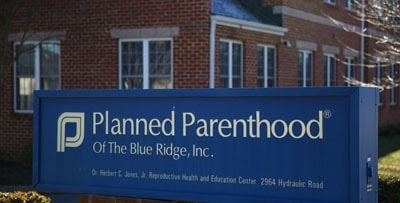
Longtime MSFC supporter Arthur Lieber recently shared his opinions about abortion in an article titled “Abortion: Focusing on the Real Issues, not the Distractions” on the progressive blog Occasional Planet. He argues that despite distractions, we must continue to speak out for abortion access and maintain empathy for women who face unplanned, unwanted pregnancy. Thank you, Arthur, for being an advocate for choice and for helping to spread MSFC’s mission and values!
“There are many reasons why a woman might seek an abortion. Who are we as society to judge which, if any, reasons are good and which are not? What we as a society can do is to be compassionate and understanding.That includes removing barriers to facilities where a woman can peacefully make her decision.”
You can read the full article HERE.
By Felipe on August 04th, 2015. Posted under: News and Views

By: Kristen C. Prewitt
Undocumented, 11-years-old, and raped by her mother’s boyfriend, she had never filed a record of the sexual assault. “Was she even raped?” administrators at the hospital where she sought an abortion had asked. According to Florida’s new abortion waiting-period statute, the answer would be “no.” The state recently passed a law requiring women to wait 24 hours after their initial appointment to have an abortion. There are exceptions for victims of rape, incest, and domestic abuse, but women have to provide documentation to support their claim, and most, like the 11-year-old girl, leave the crimes committed against them unreported.
As a medical student working in Florida-based clinics, I have seen how restrictions on abortion conspire with socioeconomic status to limit women’s access to the full spectrum of reproductive care. Over 16 percent of Floridians live below the poverty line, a rate higher than the national average. The new law threatens to exacerbate that problem, further burdening Florida women and limiting the state’s ability to train and support providers prepared to meet their needs.
Medical Students for Choice, though, is committed to challenging the new regulations. As a future abortion care provider and an advocate for reproductive rights, I am proud of MSFC’s decision to sign on as a plaintiff in litigation that aims to repeal this medically unnecessary law.
Florida Sen. Anitere Flores, one of the statute’s sponsors, has argued that women need “one day to reflect upon the risks of abortion, one day to view an image of the unborn child’s ultrasound image, and one day to consult with friends, family and faith [which is] minimal considering the effects that will remain for a lifetime beyond that irreversible decision.”
But in the precarious lives of many Florida women, one more day can become an undue burden. One more day means a higher cost for missed work, transportation, and (because most women who seek an abortion are already mothers) childcare. One more day means yet again walking past the shouts of protestors. One more day means another barrier to a woman’s ability to make the right decision for herself and her family. And the only way for those women who have endured the pain of rape, incest, or domestic violence to avoid the burden of one more day is to meet the state’s demand that they give up their right to privacy.
I have spoken with many women who have chosen to have an abortion, and I know that not one of them made that decision casually or out of convenience. When they step into the clinic, they have already had more than one day to consider their options. They understand what it means to make that “irreversible decision.”
The new statute could make the wait for an initial appointment at a clinic even longer. For reasons without any basis in medical necessity, women will be forced to make two appointments, taking up valuable time that could be spent with other patients seeking all forms of reproductive care.
This logistical strain in clinics would also impact the training of future providers. Medical professionals will have fewer opportunities to learn how to perform abortion procedures. Many medical schools, like my own, have, in the face of anti-choice activism, eliminated formal training and observation on abortion procedures. Though abortion is a common practice that three out of ten women will seek out, medical students, like myself, have been forced to go outside of our educational institutions to gain any experience with it, a void that that MSFC strives to address. The time that students spend observing procedures in the clinical environment is essential, but that time will likely become more restricted as clinics are forced to comply with the waiting-period regulation, further limiting the already minimal education we receive.
As a future physician, I hope never to have to turn away a patient in need, like that 11-year-old girl. I also hope to be part of a well-trained and properly educated community of providers who are prepared to give women the care that they deserve. The only way to ensure that these goals become a reality is by supporting efforts like MSFC’s challenge to the new Florida statute, and thereby freeing women to receive the care they need when they need it.
Kristin C. Prewitt is president-elect of MSFC’s board. She is a third year medical student at the University of South Florida.
By Felipe on July 30th, 2015. Posted under: News and Views
Targeting physicians who provide abortion care is nothing new. The extreme wing of the anti-abortion movement began deliberately targeting physicians in the early 1990’s, leading to a horrifyingly long string of physician murders as well as deliberate intimidation tactics such as “wanted” posters and websites exposing physicians’ private information. Now these extremists have succeeded in taking their targeting of physicians to a whole new level – misrepresenting themselves as legitimate medical researchers in an effort to get physicians to talk openly about their work on hidden camera so that those conversations can be edited to make both the physicians and their employers seem uncaring and callous. This is not about fetal tissue, it’s about attacking abortion, plain and simple.
Every year, more than a million women in the US choose to end their pregnancies through abortion and a relatively small number of physicians help them make that choice a reality despite the personal sacrifices they must make to provide this important health care to their patients. At Medical Students for Choice, we dedicate all of our efforts to helping young physicians gain the knowledge and skills they need to provide this option for women safely, compassionately, and with dignity. Physicians who dedicate their lives to providing this highly stigmatized health care should be applauded for their courage and caring, not castigated for discussing that care professionally with other presumed professionals. Our support of their work is critical to the health and well-being of all the people in need of abortion care every year.
Here’s what has happened as a result of the deliberate and violent targeting of physicians and the offices in which they do their work:
- There was almost a 40% decline in the number of abortion providers in the US after 1982 despite the fact that abortion is still one of the most common medical procedures in the US.
- Women must travel farther for abortion care than for any other primary health care service and face an unprecedented number of legal restrictions to accessing that care.
Each individual physician sacrifices a great deal to provide this care to their patients. Just like all of us, they want healthy families, a nice place to live, and good relationships with their neighbors and their communities. Providing abortion care makes attaining all of those more complicated. At Medical Students for Choice, we work hard to build a community of supportive colleagues around our members who choose to provide abortions because we know that they will need that community to support them on their chosen path. But let’s be clear: Physicians who perform abortions do so because they have a strong, personal commitment to ensuring that women have this choice when facing an unintended pregnancy. For all the physicians in these highly edited videos, providing abortion care was a courageous, selfless decision that has positively changed the lives of thousands of their patients.
One of these courageous physicians that I have worked with for years recently began travelling to a second facility in another state to provide abortions because there were no trained physicians in that community willing to provide the care for their patients. She now travels regularly to two different clinics in two states because she is needed. What would those patients do without her willingness to do that? I can tell you that this physician has many other practice options but chooses to do this because her deeply held values drive her to do so.
These courageous Planned Parenthood physicians should be embraced, not threatened or chastised for the sacrifices they make for their patients. It’s time to stop focusing on the “sting” and start focusing on what we need as a society – caring, compassionate, mission-driven physicians who are willing to do what most of their peers are not willing to do. I, for one, am grateful every day for their service and sacrifice. Medical Students for Choice stands with every one of Planned Parenthood’s physicians and says, “thank you.”
##
Lois V. Backus, MPH
Executive Director
Medical Students for Choice
Philadelphia, PA
215-900-2978
lois@msfc.org
By Felipe on July 09th, 2015. Posted under: News and Views
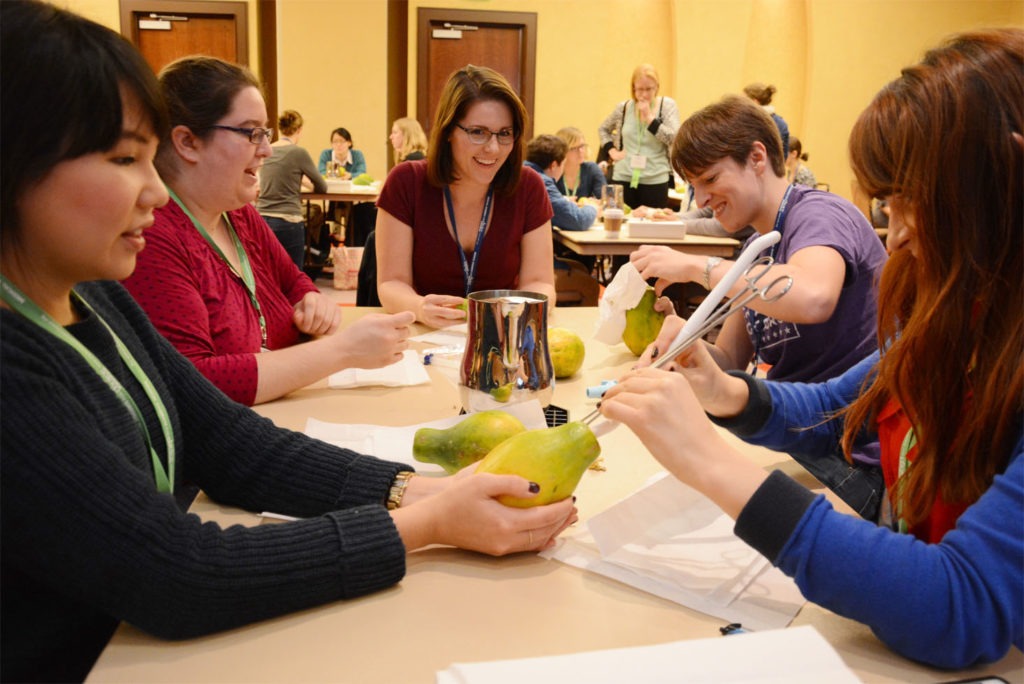
MSFC member Dr. Mara Gordon, a current resident in family medicine at the University of Pennsylvania Health System, recently wrote a piece published in The Atlantic about the dire shortage of training in abortion and family planning for medical students. Thank you, Mara, for highlighting this important message!
“I felt inspired to reflect on my motivations to become an abortion provider after attending a Medical Students for Choice Abortion Training Institute during my third year of medical school. Meeting other students who share my passion for reproductive justice was inspiring, and I felt especially moved by the stories of students who took huge risks to educate themselves about abortion. I wanted to explore the forces shaping my own educational experience– one that treated abortion as a normal part of a woman’s reproductive healthcare– and theirs, where abortion is conspicuously absent from the curricula of so many medical schools.” –Dr. Mara Gordon
You can read the article, “The Scarcity of Abortion Training in America’s Medical Schools” here.









